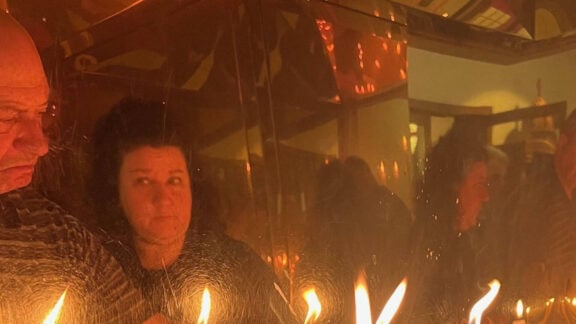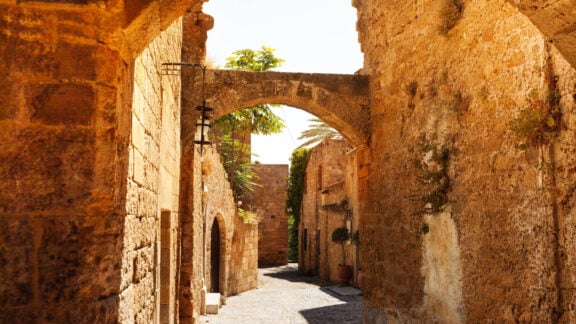“All is well. We managed to leave New Caledonia. We were transferred to Brisbane and from there to Melbourne. At last, we’re home. Everything is OK and thank you for your interest.”
This was the statement of relief provided to Neos Kosmos by Greek Australian Loukas Nitsas, who along with his wife and two children, aged five and three, had been holidaying at the French Pacific territory when riots broke out.
The latest week of violent demonstrations was sparked by controversial voting reforms that would give voting power to more French residents.
As it stands voting rights are restricted to Indigenous Kanaks and French arrivals until 1998.
On Saturday, a 48-year-man was reported as the seventh casualty amidst the protests led by the by the indigenous Kanak community, accounting for 40% of the population.
The protester was killed by a French policeman, one of the thousands deployed by the French government in recent days to the group of islands, as part of the state of emergency it imposed in response to tensions.
According to Prosecutor Yves Dupas, in New Caledonia’s capital Nouméa, the officer, now in custody, fired after he and a colleague were attacked by a group of 15 demonstrators.
The death comes a day after a visit by French President Emmanuel Macron which flared up tensions.
Two Australian government-assisted flights took off from the French territory on Friday, with an estimated 300 Australian citizens having initially registered their interest to leave with the Department of Foreign Affairs.
New Caledonia was colonised by France in the 1800s which made it an overseas territory in 1946, granting rights to Kanaks.
More than 40,000 French nationals have moved to the archipelago since a 1998 accord.
The territory is marked by deep economic disparities and the question of independence remains a thorny issue between its indigenous Kanak population and Europeans.








